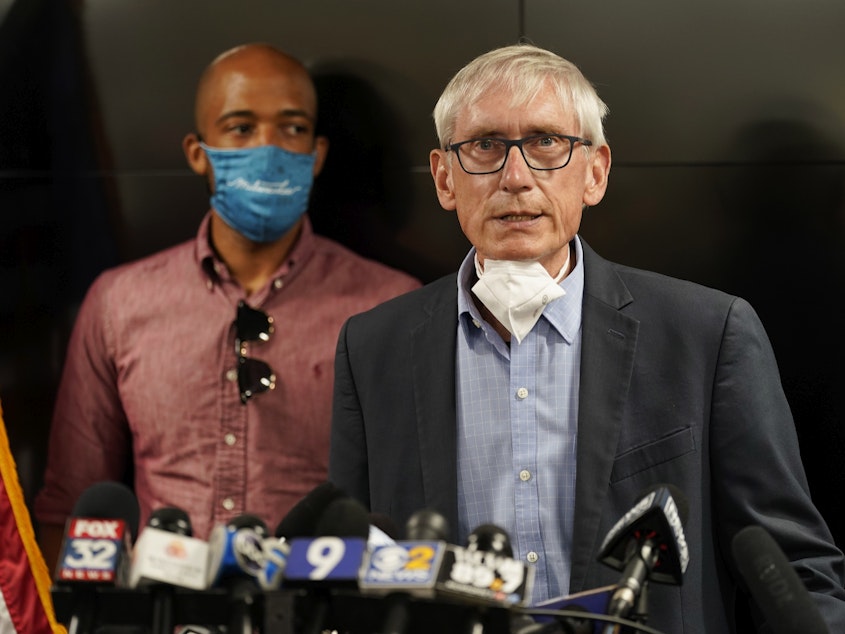National Guard Mobilized As Kenosha Braces For Charging Decision in Jacob Blake Case

Wisconsin Gov. Tony Evers authorized the mobilization of the state's National Guard. This comes as officials brace for another potential round of unrest ahead of an anticipated decision over whether to charge a white police officer for the shooting of Jacob Blake.
Evers, a Democrat, said in a statement Monday that local authorities requested the assistance. Approximately 500 Wisconsin National Guard troops were called to active duty this week to assist local law enforcement.
"We are continuing to work with our local partners in the Kenosha area to ensure they have the state support they need, just as we have in the past," Evers said.
"Our members of the National Guard will be on hand to support local first responders, ensure Kenoshans are able to assemble safely, and to protect critical infrastructure as necessary," he added.
Kenosha County District Attorney Michael Graveley has notified city officials that a decision on whether charges will be filed against the officer are expected in the first two weeks of January.
Sponsored
The activation of the Wisconsin Guard comes on the heels of Kenosha Mayor John Antaramian and Police Chief Daniel Miskinis announcing what they called "precautionary community safety measures" designed to keep the public and demonstrators safe and guard against "unlawful activity."
Some of the safety protocols city officials are considering include a designation of demonstration space, curbing some city bus routes, road closures, protective fencing and a curfew.
Kenosha was the scene of several weeks of protests that turned violent following the Aug. 23 shooting of Blake by Kenosha police officer Rusten Sheskey, who is white.
Blake, who is Black, was shot multiple times in the back at close range after he slowly walked away from officers and toward the driver's side of a parked vehicle, opened the door and leaned inside. Investigators later said a knife was recovered from the driver's-side floor board.
Blake was left paralyzed by the shooting.
Sponsored
The encounter was captured by an onlooker on cellphone video and posted online where it went viral, sparking outrage.
"We want justice and healing for Jacob Blake, the Blake family, and our Kenosha community," said Tanya McLean, executive director of the grassroots organization Leaders of Kenosha, which renewed calls Monday for Sheskey to be arrested and face criminal charges.
"Officer Sheskey fired seven shots into an unarmed man's back, on a block where our children walk to school and our families go to church," she continued, according to Wisconsin Public Radio. "All of us — Black, white, brown, native and newcomer — deserve to be safe in our own neighborhoods, and that means holding police officers accountable when they brutalize us."
The shooting of Blake took place nearly three months after viral video was posted to social media capturing the killing of George Floyd by police in Minneapolis. That incident also triggered widespread demonstrations in Minnesota and throughout the country as protesters called for an end to social injustice and for police reform.
Days after the Blake shooting and amid ongoing unrest in Kenosha, an Antioch, Ill., minor was captured on video Aug. 25 armed with a long gun when he allegedly shot three men: Anthony Huber and Joseph Rosenbaum, who were killed, and Gaige Grosskreutz, who was seriously wounded.
Sponsored
The alleged shooter, Kyle Rittenhouse, is out on $2 million bail and faces several charges, including first-degree intentional homicide and attempted first-degree intentional homicide. [Copyright 2021 NPR]

